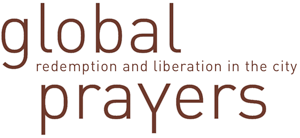In 1979, the Shah’s regime was toppled, and not long thereafter, the Islamic Republic of Iran was founded. The 1979 revolution has been variously read as anti-monarchist, anti-imperialist, nationalist and/or religious. It drew its support not only from self-declared followers of Khomeini, the revolution’s leader, but also from a broad base of socialists, workers, poor people and middle-class supporters - including feminists - as well as religious believers.
How did a revolution with such a diverse support base metamorphose into a seemingly homogenized ‚Islamic’ revolution? And why was the foundation of an Islamic Republic supported by people of so many different political beliefs and factions? These are two of the main questions I want to address in my artistic research. I am examining this specific historical event because the process of politicization of Islam leading to the foundation of a state is unique within the so-called Muslim world. It had, and still has, exemplary meaning. In what ways can its historical reconstruction offer us an understanding of the current political situation and show us possible prospects? And apart from the dynamics within the country itself, how did the Iranian revolution affect the discourse in the neighboring countries, in the Middle East as well as in the West/Global North? How did political Islam come to be perceived as a worldwide phenomenon that cannot be limited to the Arab/Persian region but has also - in a globalized world associated with migration and the media - manifested itself in the West/Global North as well as on the African and Asian continents?
In my installation project, I will work with a selection of historic film clips and photographs of the Iranian revolution in 1979. Together with filmmakers, photographers, and other participants, I want to engage in a re-reading of the event and look into the relation between the ‘big’ and the ‘small’ media in the protests against the Shah’s regime. I will extend this reflection to the question of how this historical event was represented within the media in the Global North and South. Journalists, political activists, sociologists, photographers and filmmakers appear in my project not only as contemporary witnesses: their specific readings will configure the narration of my film work, in which historic film and interview clips will be combined with staged scenes.
Hengameh Golestan on her and Kaveh Golestan's work during the Iranian revolution. Video: S. Schäfer
Sociologist Asef Bayat during a debate in London in July 2010. Video: S. Schäfer

